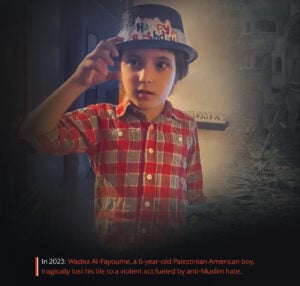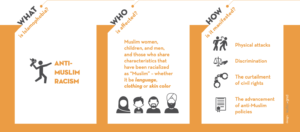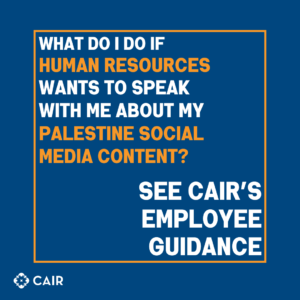The Council on American-Islamic Relations (CAIR) is releasing analysis of U.S. corporate statements that ignored many diversity, equity and inclusion policies by disregarding the legitimate concerns of their employees who value Palestinian life and oppose occupation and apartheid. This document records current instances of corporate support for Israeli interests amid a lack of subsequent concern for the loss of Palestinian life, as well as attempts by corporate leaders to stifle support for Palestinian civilians on university campuses.
CAIR holds that every life has value. Because of this belief, we have historically shed light on the injustices facing Palestinians, including those residing in Gaza – widely considered by human rights organizations to be an ‘open-air prison’ where nearly half of the residents are under 18, children.
Following the attack on Israelis earlier this month, hundreds of top finance, tech, and healthcare companies have issued statements or otherwise expressed support for Israel. However, they have simultaneously neglected to mention a word of support toward the thousands of Palestinian civilians killed by the subsequent Israeli war on Gaza. These statements emerged on public platforms such as X/Twitter and LinkedIn throughout the week, even as Israel began indiscriminately bombing Palestinian civilians, journalists, and hospitals, killing hundreds and wounding many more each day.
On October 10, for example, a wave of statements explicitly condemned the attacks against Israel that occurred earlier that week, while neglecting to acknowledge that more than 900 Palestinians had been reported dead that same day due to Israeli attacks on the Gaza strip. As of October 16, the Palestinian Health Ministry reports that the number of Palestinians dead due to Israeli attacks in Gaza and the West Bank since October 7 has reached over 2,700, with nearly 10,000 injured.
The lack of any statement of condemnation of Israeli military tactics or of support for Palestinian rights is particularly concerning, given that many of these corporate leaders and their companies have adopted stances promoting diversity, equity, and inclusion in the workplace. However, while companies have sought to create spaces of belonging for Israeli employees through the release of statements, their Palestinian ones, who are also significantly affected by the conflict, are frequently left without a sense of support at their place of work.
Corporate Leaders Issue Statements
Hundreds of companies have either issued or endorsed statements in the previous week expressing support for Israel, while neglecting any similar demonstration of support for Palestinian civilians in Gaza.
- In an October 10 post on LinkedIn, Amazon CEO Andy Jassy wrote that the “attacks against civilians in Israel are shocking and painful to watch,” while neglecting to show similar sympathy for the indiscriminate attacks on Palestinian civilians.
- In an October 10 post on X/Twitter, Google CEO Sundar Pichai wrote that he is “deeply saddened by the terrorist attacks in Israel this weekend and the escalating conflict underway” and expressed concern for the “victims and their families,” without acknowledging the Palestinian civilians also made victims by this conflict.
- In an October 11 post on X/Twitter, Microsoft CEO Sadya Natella was “heartbroken by the horrific terrorist attacks on Israel and the escalating conflict,” similarly while neglecting to mention Palestinian lives lost during this conflict.
- In an October 12 post on X/Twitter, Pfizer CEO Albert Bourla posted a statement condemning the “scope of the atrocities carried out against Israel and its citizens,” including the “intentional targeting of civilians,” while making no mention of Israeli targeting of Palestinian civilians in Gaza.
- On October 13, JPMorgan Chase CEO Jamie Dimon expressed that “[the October 7] attack on Israel and its people and the resulting war and bloodshed are a terrible tragedy,” without explicitly identifying that many of the victims of this war are also innocent Palestinian civilians in Gaza.
Other companies and hospitals that have released such statements publicly or to their employees include:
- Beth Israel Deaconess Medical Center
- Citigroup
- Consumer Technology Association
- Disney
- Hewlett Packard Enterprises
- Medtronic
- Mount Sinai Health System
- UBS Group AG
Meanwhile, a group of over 700 venture capital companies collectively signed onto a statement arguing that “Israel has been an enduring partner to the global innovation ecosystem” and condemning “the recent terrorist attacks in Israel.” Moreover, it calls on the “global venture community to support and engage with Israeli startups, entrepreneurs, and investors as they navigate through these challenging times.”
This demonstrates the continued failure of corporate leaders to sympathize with the Palestinian civilians currently under attack by Israel, as well as to lend the same support to Palestinian “startups, entrepreneurs, and investors” as they similarly navigate through challenging times.
Corporate Leaders Threaten Student Activists for Palestinian Human Rights
While many corporate leaders have simply refused to acknowledge the existence of Palestinian civilians, others have explicitly sought to stifle any condemnation of Israeli attacks on Gaza, specifically targeting student activists at universities. Some corporate leaders sought to silence students by speaking to their university’s administration, while others have used their public platforms to threaten students’ career prospects. These attacks against students who voice their concern for Palestinian human rights amount to intimidation.
- Citadel LLC CEO Kenneth Griffin claimed that he used his considerable influence as a major donor to the university to urge administrators to “come out forcefully in defense of Israel,” seemingly seeking to counter the viral statement released earlier by students. When asked by the New York Times if Citadel would ever hire the head of a student group who signed the statement, Griffin reportedly responded with an “unequivocal no.”
- Baupost Group CEO Seth Klarman also claimed to have confronted Harvard University administrators over the statements of students supporting Palestinian rights, according to his conversation with the New York Times.
- In other private conversations with the New York Times, “more than a dozen donors” claimed to have confronted a range of institutions of higher education such as the University of Pennsylvania, New York University, Stanford University, and Cornell University over student activism for Palestine.
- Also in response to the statement released by Harvard students, on X/Twitter, Pershing Square Capital Management CEO William Ackman publicly called for Harvard to release a list of signatories to CEOs so that they do not “inadvertently hire any of their members.” Multiple other CEOs, including those at FabFitFun, EasyHealth, Dovehill Capital Management, and Sweetgreen, have publicly supported him in threatening the careers of students who share their concern over Israel’s treatment of Palestinians.
These widespread attacks on student activists are reinforced by the lack of any meaningful display of sympathy toward Palestinian civilians by corporate leaders. This combined leaves Palestinians and those in support of Palestinian human rights isolated at their place of work and fearful of possible consequences should they raise choose to discuss how the conflict impacts them or their families with their employers.
As a result, CAIR calls on employers to commit to supporting employees of all backgrounds who are affected by this conflict. We ask employers to:
- Inquire after the well-being of their Palestinian and Muslim employees, particularly as we witness increased instances of hate and violence toward Palestinians and Muslims in the United States.
- Release statements that similarly extend sympathy to Palestinian civilians who have been killed by Israeli bombings in recent days, if such employers have also publicly stated their sympathy for Israeli civilians affected by the conflict.
- Publicly condemn attempts to intimidate students and employees by other corporate leaders and restate their commitment to diversity, equity, and inclusion in the workplace.
- Sign a pledge condemning anti-Arab and Islamophobic bias. See here for our sample template.






